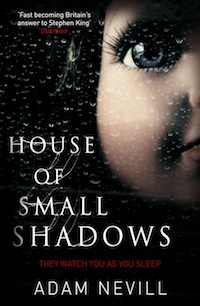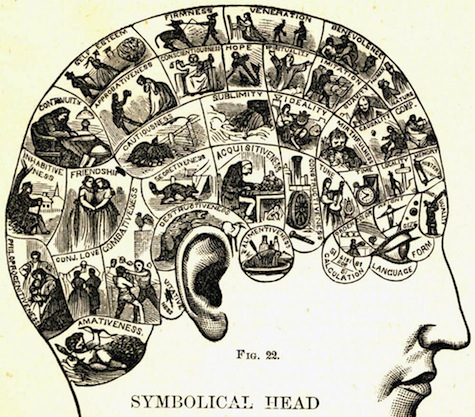One of the most important developments while becoming a writer is the cultivation of an inner reader. Within every writer there needs to be a reliable inner reader, and the latter requires autonomy and independence from the creative writer; an inner reader should be immune to being fooled, bribed, intimidated, or coerced by the exhausted or wishful-thinking writer half of the team. Essentially an inner reader is an objective editor. Some psychiatrists now believe we are all, to some degree, constructed from multiple selves, each having a specific role in a specific situation. An inner reader, I sometimes think, can be one of these specialist detached ‘selves’ inside a writer.
Before a focus group or trusted reader looks at your work, leave a draft entirely alone for no less than four weeks, and then allow your own inner reader/editor to read it with fresh eyes. You need to get to a point where you trust your inner reader before you place your work near anyone else. Here’s a tip: after this first draft reading, if your inner reader/editor smiles and declares it good to go to print, you actually don’t have an inner reader worth much at all, and may never achieve your potential as a writer. I know because I was that writer in 1995: a writer without much of an inner reader. But I wasn’t that writer by 1998. By 2013, I would say I have a much better inner reader than I had in 1998 too. God willing, by 2016, I hope my inner reader will be more insightful than he is now, and just as ruthless. I think when our inner readers stop improving their intuitive editorial skills, we stop improving as writers. If I hadn’t worked so hard at my inner reader, I would still be the writer I was in 1995 or 1996, who, quite frankly, mortifies me with shame now.
Anyone can self-publish a first draft onto the internet these days, and some literate adults get lucky; some famous authors don’t seem to try that hard anymore, or are perhaps so feted they don’t realise that they aren’t trying hard enough. Regardless of your writerly status, why engage in the heartbreak and intensity and euphoria of writing fiction, if you are not committed to writing as well as you can?
I can promise one thing, once you have an inner reader in reasonable shape, you will never be satisfied with the first few drafts of your book or story. Ever. But that is a really, really good situation to be in. A strong inner reader is a positive form of masochism with an influence that can make your writing resonate.
So how do you get a good inner reader? They evolve from reading better writers and from reading the best analysis on writing technique; they take a more distinct form through the teaching of good mentors or specialist tutors who have a mastery of language (and you will probably have to pay for one of these on a reputable course — a good way of making a commitment to your work). Believe it or not, inner readers also evolve by reading good literary critics in publications like the Literary Review, The Times Literary Supplement, the London Review of Books, or the Paris Review. Through all of these sources, over time, inner readers begin to acquire an informed discourse on your work. Which, in an uncanny way, is their work, too.
A good inner reader won’t come easy for most of us; they take time to evolve. There are exceptions, but most of us are not exceptions. Don’t listen to the writer half! The writer half gets his effortless multitude of ideas and his imagination confused with the ability to write well; the two are not the same thing. There is nothing easy about writing well, even if you believe you are writing well without much effort. I never get too excited about a first draft; I do start to get excited by the fourth or fifth though. I once went up to seventeen drafts, which may have ultimately been counter-productive, but now tend to find between seven and ten drafts is a happy compromise, with fewer and fewer changes being made as I get near double figures. We’re all different, but in my early drafts my inner reader does ask me to rewrite nearly every sentence, rearrange every paragraph, and cut sentences the writer in me thought were good . . . but these sentences invariably don’t make sense, or capture what I had attempted to depict. An inner reader is infuriating, but in my experience, they don’t lie. Nobody said it was easy.
 One book that matters is worth a thousand books that are okay. Aspiring to make your writing matter, even if our books ultimately don’t matter, is better than trying to get lucky or foolishly believing your work is there or thereabouts through innate ability. The inner reader communicates through nagging doubts, and pulls less enthusiastic faces than the writer ever will in full flow, but learn to examine those doubts and read those faces.
One book that matters is worth a thousand books that are okay. Aspiring to make your writing matter, even if our books ultimately don’t matter, is better than trying to get lucky or foolishly believing your work is there or thereabouts through innate ability. The inner reader communicates through nagging doubts, and pulls less enthusiastic faces than the writer ever will in full flow, but learn to examine those doubts and read those faces.
The good thing is, the more you write and read and study writing, an inner reader will naturally take shape. You will not be able to retard the growth of an inner reader, but if you learn to ignore him, or her, you will never write your best book.
Called “Britain’s answer to Stephen King” by the Guardian, Adam Nevill writes truly terrifying tales of the macabre such as Apartment 16, The Ritual and Last Days. His new novel House of Small Shadows is out this October.










